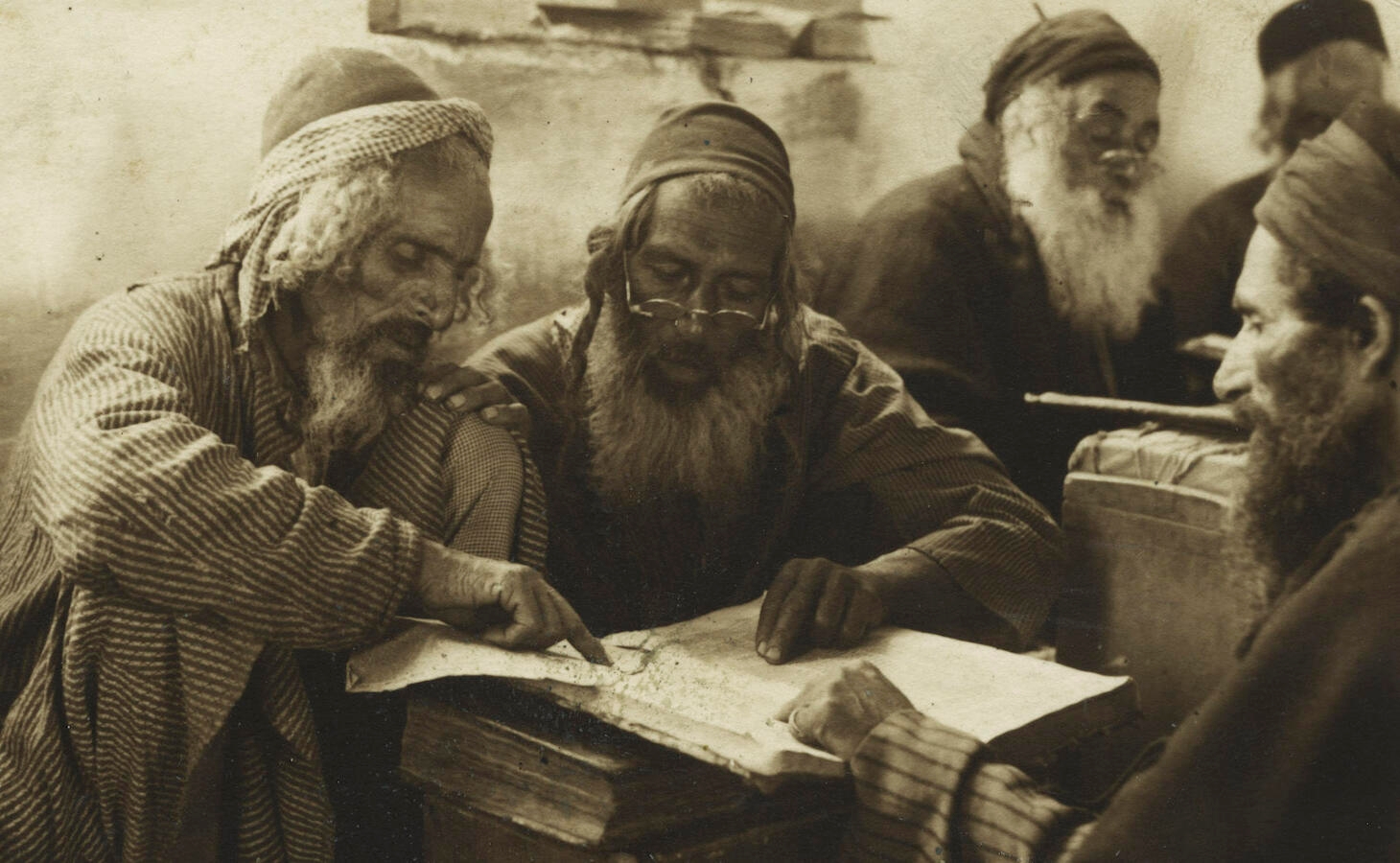On the eve of Rosh Hashanah, I would often welcome the hundreds of people gathered in the university chapel and suggest that we consider ourselves not simply as students, teachers, workers, parents, friends and visitors brought together to mark the new Jewish year, but as actors on a grand stage tasked with inhabiting the words and sounds of an ancient liturgy as if we’ve never done it before. So breathe deeply, I would encourage them. Let go of your fears and perplexities and let yourself feel as if you are returning once again to the beginning of everything, a place at once utterly familiar and yet totally new, a home you’ve never left to which you return for the first time. Welcome to beginning again.
Then, after humming some melodies, we would greet each other warmly and I’d lay out a stage direction: “We are a community of pilgrims who’ve journeyed to this ancient Temple where we will spend the next ten days, the Days of Awe, re-creating the world. The stage manager has already set up the lights and put the scenery in place. Now we are tasked with re-birthing the Jewish people. We do this by becoming them. My fellow Jews, welcome to the birthday of the world.”
It struck me then, and does still, that the wildest Jewish belief, implicit in every form of Judaism, is that there actually exists a Jewish people. While it is easy to frame accurate one-line descriptions of them like, “The Jews are a scattered people who believe themselves to be the lineal descendants of the ancient Israelites,” there is no single definition of a Jew which all Jews would embrace. They are in fact fiercely divided over whether they constitute a culture, a nation, a class, a religion, a civilization, a faith community, or simply an attitude toward life. They are so elusive, especially to themselves, that it seems only reasonable to ask: Does the Jewish people actually exist?
There are Hasidim and Zionists, secular, Orthodox and Reform Jews, Sephardic and Ashkenazic Jews, Jews of different colors and races who speak a myriad of languages and observe a range of Jewish practices and rituals. And I know that many of these people believe they are a true — maybe even the true — expression of Jewish tradition and history. But tell me, how is it possible for there to be a community that contains all these conflicting sects, movements, institutions, commitments, memories, beliefs, practices and loyalties and that knows itself, en masse, to be the Jewish people?

Help us keep Jewish knowledge accessible to millions of people around the world.
Your donation to My Jewish Learning fuels endless journeys of Jewish discovery. With your help, My Jewish Learning can continue to provide nonstop opportunities for learning, connection and growth.
Is it possible that the Jews exist only as an idea in the minds of antisemites who believe they are a dangerous, demonic force bent on dominating the world? Or in the minds of people so traumatized by the long history of Jewish suffering that they believe the Jews have been singled out by an insatiable enemy, a Haman or a Hitler, who arises in every generation to erase them from the world? Or maybe the Jews only exist in the minds of those who hold that God singled them out long ago, chose them and still treasures them, and punishes them, sometimes barbarously, for their sins.
But let me raise another possibility. What if the Jews actually do exist in the world, but as an utterly incoherent, unclassifiable, ever-changing life form — one that, teetering always on the edge of extinction, artfully improvises outrageous survival strategies through persistent reinventions? Perhaps the Jewish people are the embodied principle of life itself, the bearer of the mystery of existence, a gaggle of dream and nightmare, of vision and despair, ever being born and ever dying? What if they are a distillation of humanity evolving, a reflection of the hidden aspiration of the species to become that which it is not yet?
If you are partial to this formulation of Jews and Jewishness, as I am, then tradition is a storehouse of costumes, designs, scripts and scenery — not an obligatory framework, but a lexicon of possibilities. Your job is not to protect the Jews from assimilation and disappearance but rather to support and nurture them in becoming new again, to develop and invest in the arts of natality, experimentation, exploration. You understand the Exodus as the will to throw off the yoke of stale custom and Sinai as the summons to reimagine the shapes and pathways of work and production, rest and recreation, beauty and celebration.
This view of Jews and Judaism has major opponents — serious, sincere, armed and ready to fight. Tradition wars against history; inhibition against expression; restraint against freedom; the collective against the individual; home as bastion against home as Sukkah-like shelter; imagination as a gift of insight against imagination as madness. Pilgrims must therefore learn also to be fighters, scrappers who deploy patience and wit, playfulness and commitment, the readiness to make it up as you go, to carry on no matter what, to receive what comes your way as a gift, knowing that every end is a beginning. To be continued!
This article initially appeared in My Jewish Learning’s Shabbat newsletter Recharge on May 13, 2023. To sign up to receive Recharge each week in your inbox, click here.




